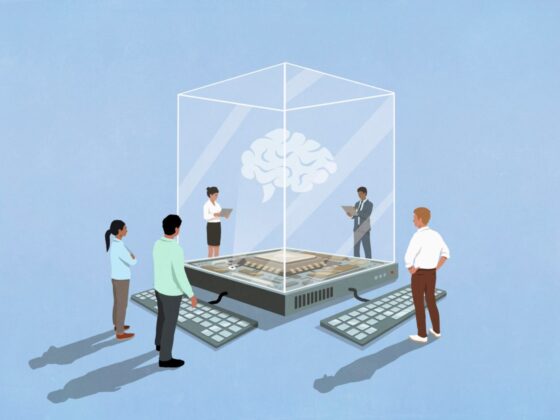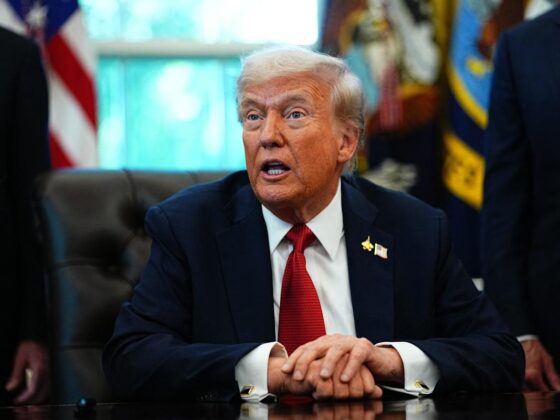00:00 Speaker A
US stocks keeping losses in check this morning, even after President Trump threatened higher tariffs on Mexico and the EU over the weekend. What is driving investors' resilience toward trade policy? Morgan Stanley's Mike Wilson has one theory and joining me now to explain that theory is markets reporter Josh Shafer. So, uh, Wilson always provocative. So, what does he thinks going on here?
00:25 Josh Shafer
Yes. Yeah, so, so this was an interesting analysis from Mike because he he sort of gave the caveat that perhaps there's some element of the quote-unquote taco trade, right? That Trump always chickens out, and that's sort of the prevailing take right now would be, “Well, Trump keeps escalating these tariffs and then dialing them back down.” Maybe markets just doesn't believe that we're going to be at these tariff rates, right? But he also sort of took a closer look, truly. And he had a really interesting chart in here that had a little bit too much going on for me to pull up. So I'm going to give you the the TLDR on it. But he looked at different sectors that are exposed to different countries. And what his takeaway was, was really the tariff story should probably be all about China. So he looked at sub-sectors. Eight sub-sectors, including large ones like technology and semiconductors, would be heavily exposed to tariffs on China, where they would not be nearly as exposed is tariffs on Mexico, tariffs on the European Union, and a lot of the other tariffs we've been hearing about over the last week. So Wilson sort of arguing that for the market and the broad market, what would matter most is simply what the ultimate result is of the trade war with China, because those are going to be what impacts the big tech companies the most. And as we talk about seemingly all the time on this show, what matters to the market the most is likely what happens to Big Tech, right? And sort of what happens to those companies, and how tariffs could impact them. So maybe it's just a little bit more about China and not as much.
02:32 Speaker A
Yeah.
02:33 Josh Shafer
Mexico.
02:34 Speaker A
That's interesting. So, so that implies then if we get more negative headlines on China, maybe that would have a larger… I guess that would be the test of his theory. If we get more negative uh headlines on China, would that have a more negative um impact on the market? You know, we've also been hearing a lot of strategists talk about a couple of other threads. One is the reaction to the tax and spending bill which um, on balance, actually the positive reaction to it has been a little bit surprising to me given that it's mostly just an extension of existing tax, uh tax cuts. But there's also been talk about the depreciation. In other words, there is a measure in there that could lead to more spending on the part of companies. It makes it more tax advantageous for them to do so. So there is does also seem to be this view among strategists that there it is more stimulative than had been expected and helps offset some of the cost of the tariffs.
04:18 Josh Shafer
For, for sure. You have A, the tax bill. And then B, I mean, we'll get more info on this over the next three weeks, right? But largely, strategists still feel pretty good about earnings too, right? You, you haven't seen clear enough impacts from tariffs for a lot of these strategists to just simply mark down their earnings estimates at this point. Again, we will certainly know a lot more over the next four weeks of whether they've been right to sort of be steadfast, but earnings revisions have, after coming down significantly in April, have been coming up and sort of backing that part of the rally. And so when you add that into it, it's like, well, why do we talk about tariffs? We talk about tariffs because we're curious if they're eventually going to hurt corporate profits, right? And so right now if our thesis is the current tariffs are not going to significantly impact, broadly, broadly speaking, corporate profits, then why would I be selling stocks? And so that's what the market believes, at least today. But maybe the data gets worse, and everything spirals, right?
05:45 Speaker A
Right. Right. And it would pay to pay attention to those stocks where it would have more of a direct effect, which have seen more of a, of a hit.
06:01 Josh Shafer
Yeah. Retail stocks still aren't doing well. Right.
06:03 Speaker A
Exactly. Right. All right. Thanks, Josh.













